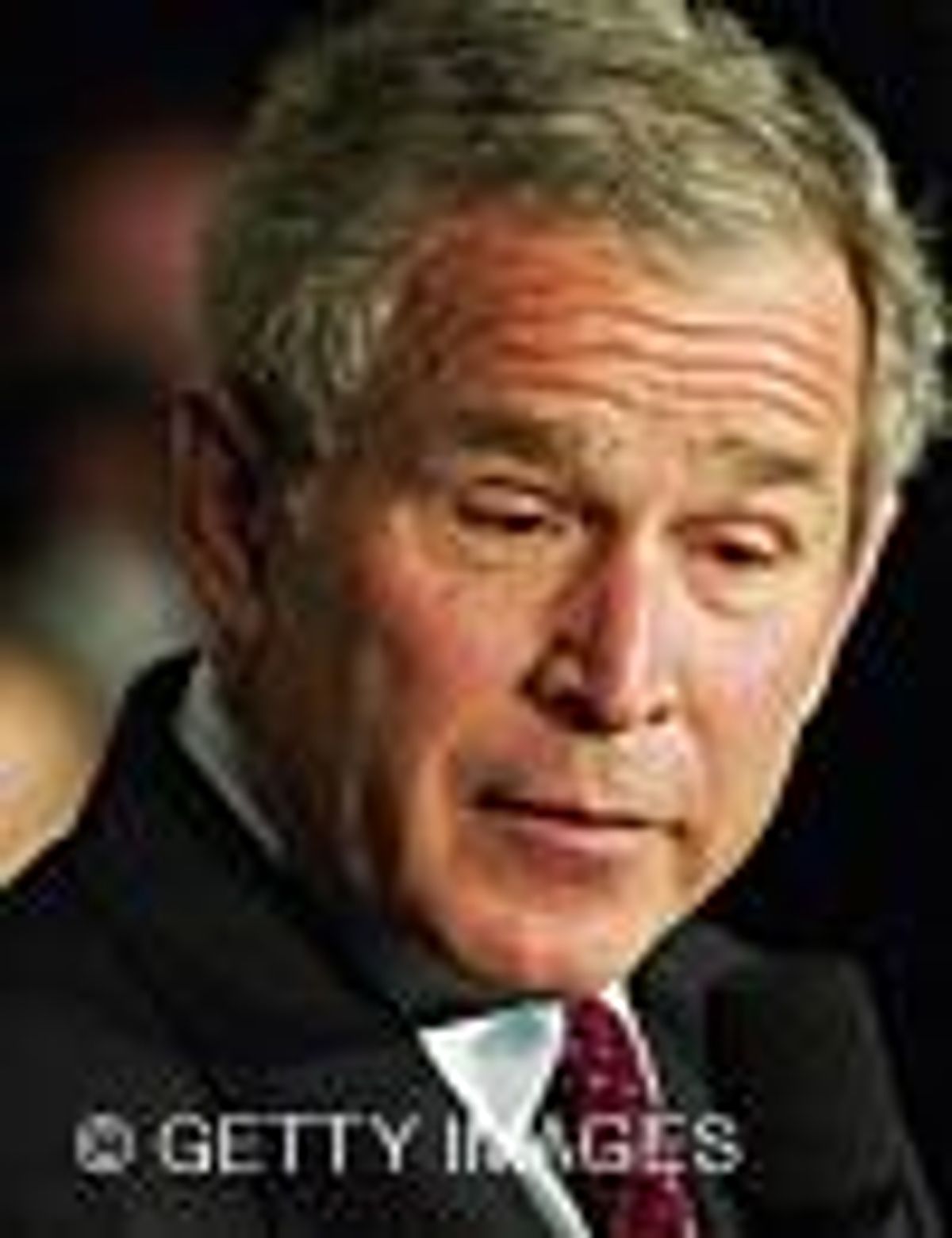The Bush
administration last year quietly rewrote the rules for
allowing gays and lesbians to receive national
security clearances. Lesbian and gay advocacy groups
recently found the changes in an 18-page document
distributed by national security adviser Stephen Hadley on
December 29, without public notice.
The Administration said security clearances
cannot be denied "solely on the basis of the sexual
orientation of the individual." But it removed
language saying sexual orientation "may not be used as a
basis for or a disqualifying factor in determining a
person's eligibility for a security clearance."
"The Bush
administration's stealth effort to allow
discrimination against gay and lesbian citizens in
receiving national security clearance is a step
backward for a nation that holds itself out as a land of
equality," said openly lesbian congresswoman Tammy Baldwin
of Wisconsin. "A person's sexual orientation
should not be considered in determining eligibility
for access to classified information. Sexual
orientation has no relevance to a person's
reliability, trustworthiness, or ability to protect
classified information."
The White House
sought to play down the changes, approved by President
Bush in December, as an effort to ensure the security
clearance rules are consistent with a 1995 executive
order about access to classified information. "The
minor language change did not and was not intended to
alter the way sexual orientation is treated," National
Security Council spokesman Frederick Jones said
Tuesday in Washington. "The U.S. government policy has
not changed in any way." Jones said government lawyers
made the changes for clarity.
Gay rights activists expressed concern that the
new guidelines could lead to a chipping away of
safeguards obtained in the 1990s for gays and lesbians
seeking security-related government jobs. Joe Solmonese,
president of the Human Rights Campaign, said Bush's rules
could "open the door for broader interpretation" of
rules granting security clearances for national
security-related jobs. "It is not surprising to
me that this administration is continuing to roll the clock
back on the most basic of protections granted by the
last administration," said Solmonese.
Several million civilian and military personnel
who work for the United States government and its
contractors must go through extensive reviews to
determine if they've exhibited behavior that could
compromise national security or make them susceptible
to blackmail. Areas of concern include drug and
alcohol use, criminal activity, financial debt, foreign
contacts, and sexual behavior.
Officials at several national security agencies
were not immediately aware of the new rules or any impact.
Rules approved by President Clinton in 1997 said
that sexual behavior may be a security concern if it
involves a criminal offense, suggests an emotional
disorder, could subject someone to coercion, or shows a lack
of judgment. The regulation stated that sexual
orientation "may not be used as a basis for or a
disqualifying factor in determining a person's
eligibility for a security clearance."
Bush removed that categorical protection, saying
instead that security clearances cannot be denied
"solely on the basis of the sexual orientation of the
individual." The new rules say behavior that is
"strictly private, consensual, and discreet" could "mitigate
security concerns."
Jones said the new language was meant to ensure
the United States security clearance guidelines
are consistent with Clinton's executive order. He said
the order makes clear that the U.S. government does
not discriminate on the basis of sexual orientation when
granting access to classified information.
Steve Ralls, spokesman for the Washington,
D.C.-based Servicemembers Legal Defense
Network, said his organization is still sorting out what
the Administration intended so that attorneys can provide
guidance to gay and lesbian personnel on how to answer
questions during government background checks.
"It looks as if lesbian and gay service members
especially may face some additional roadblocks to
obtaining their security clearances," said Ralls,
whose group advocates on behalf of gays and lesbians in the military.
He said his organization has been getting calls
from service members who don't understand the changes.
"In the law, subtlety can have even unintended major
consequences. We are very concerned and curious," he
said. (AP, with additional reporting by The Advocate)




















































































